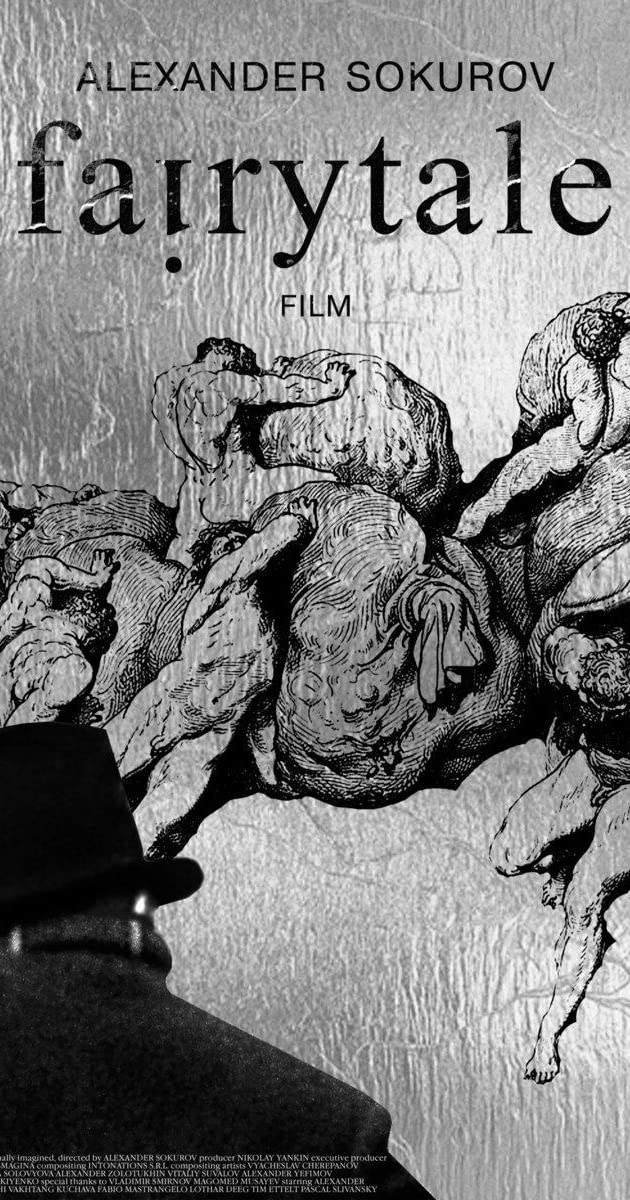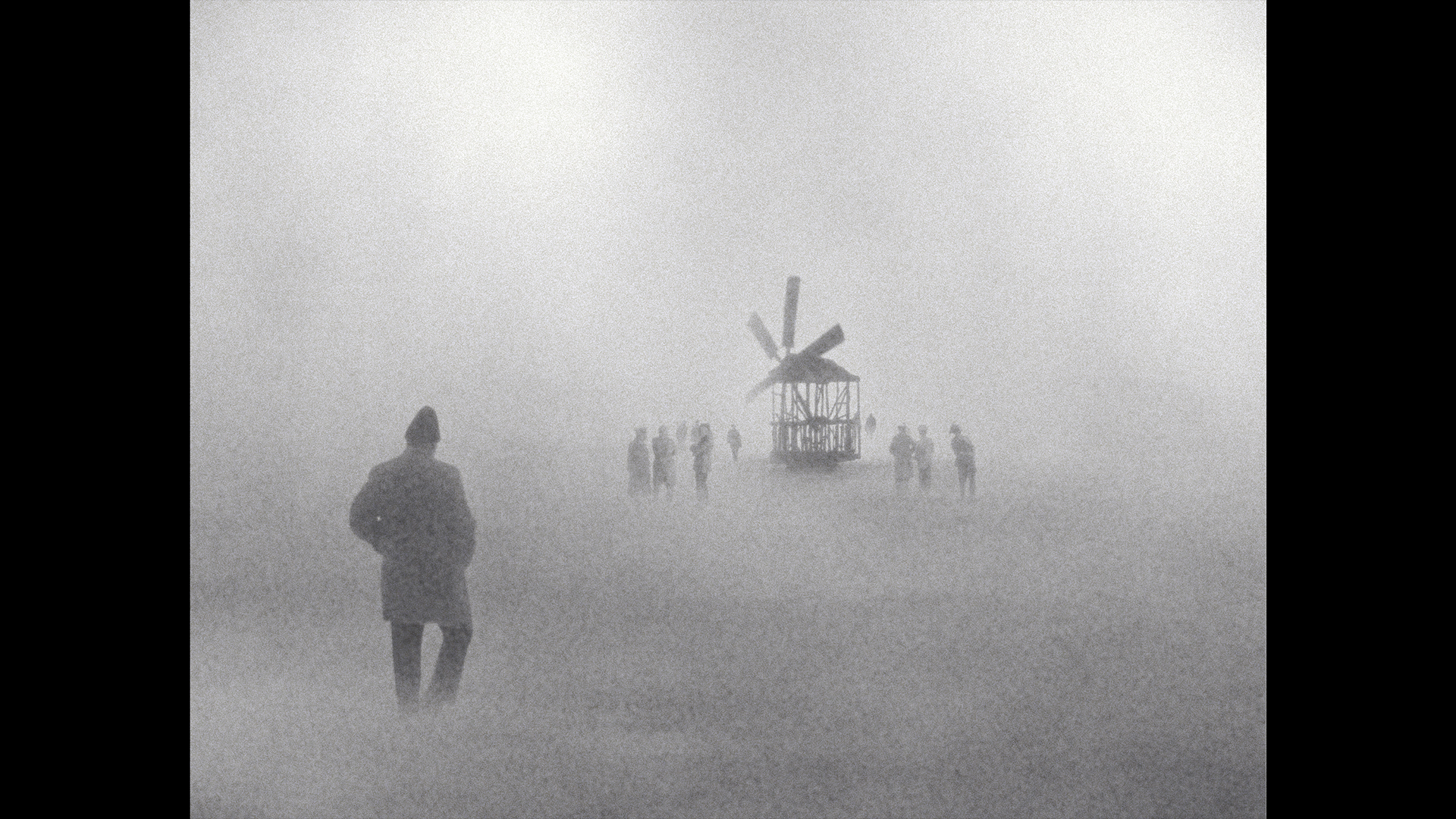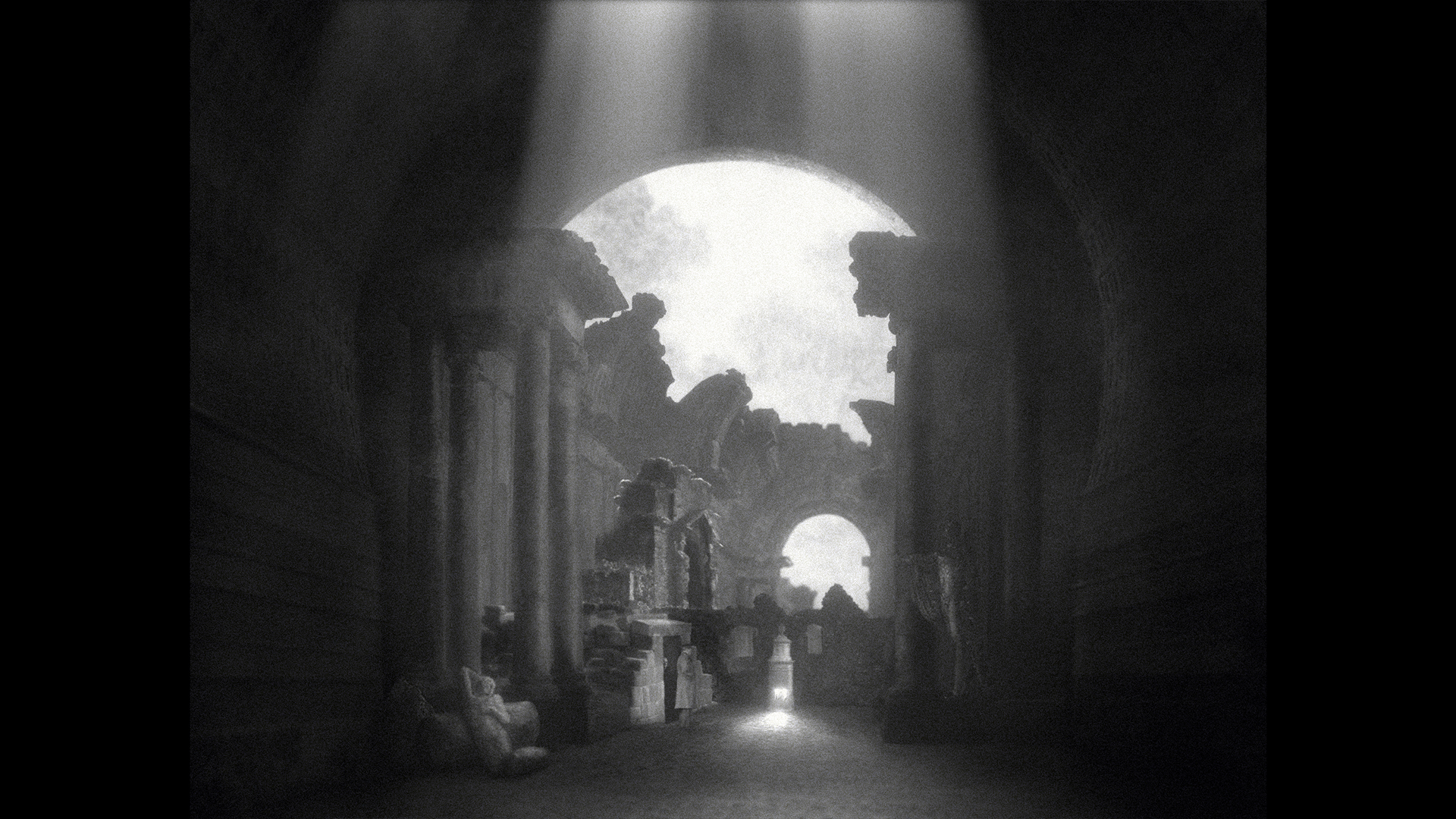
The politicians and dictators who have forever changed history meet in Purgatory waiting to find out whether they’ll cross the door to Paradise or descend to Hell. This is the dark and visionary Fairytale (Skazka) brought to life by the revolutionary Russian filmmaker Aleksandr Sokurov.
Adolf Hitler, Benito Mussolini, Yosif Stalin, Winston Churchill, Napoleon Bonaparte are gathered in the afterlife in a setting that resembles Dante’s Divine Comedy — it is actually evoked by Mussolini enunciating the first verse of the famous poem “Nel mezzo del cammin di nostra vita mi ritrovai in una selva oscura,” [“Midway upon the journey of our life, I found myself within a forest dark”]. Each of the historical figures converses with the other in his own language, as arguments, jokes and considerations intermingle within a Babelism about the constructs of power. While they are stuck in this limbo, they confront the ordeal of being unable to cross the threshold of oblivion that separates the present from the past. They are now absorbed by their own impractical battles with imaginary or over-inflated enemies. In fact, just like Miguel de Cervantes’ Don Quixote, they come across a windmill that Hitler orders to stop turning before capriciously setting it on fire.

All these legislators openly slip into mockery and reproach each other as they expose their ideas on Bolshevism, Nazi-Fascism, democracy, poverty, the Christianity of the Communists and the Socialism at the base of Fascism. Hitler, Mussolini, Stalin, are still carrying out their propaganda campaigns. Even a democrat like Churchill ends up in this reprehensible crowd, as someone equally responsible for having ordered bombings and acts of warlike violence. The men who find themselves in this unearthly place are similar to Sartre’s characters from his play No Exit, who are stuck in an unescapable environment and are forced to acknowledge that we construct a hell for ourselves when we refuse to take responsibility for our own actions and would rather blame others.
Aleksandr Sokurov has specialised his mesmerising filmic craft in the analysis of the corrupting effects of power as shown in his tetralogy, dedicated to prominent 20th century rulers: Moloch (1999), about Hitler; Taurus (2001), about Lenin; The Sun (2005) about Hirohito. Sokurov further investigated the decadence of power with his retelling of Goethe’s tragedy: Faust (2011). Fairytale is an astoundingly remarkable continuation of this philosophical discourse through moving pictures, that was presented at the 75th Locarno Film Festival.

The beguiling visuals utilise an experimental technique of animated archival footage where the pompous statesmen have defined features, contrarily to the common folk that is depicted as a shapeless mass. Only Jesus Christ is a figure with a recognisable form, amongst those that cross the infernal path of the iconic leaders. The rough-hewn, black and white image provides an otherworldly charm to the uncanny cinematic fable. The phantom-like wandering officeholders are transformed into farcical figures, enveloped in a thin smoke that enhances the oneiric setting. The engravings by Piranesi, the homage to Michelangelo and other Italian artists, amalgamated with the images of a monumental Rome in ruins, leads back to the concept of an ideal Europe, that however stands on the foundations of imperialism and bloodshed.

Sokurov is ingenious also in the score he uses for Fairytale, since he opened his personal archives for Alexander Vanyukov to play with sound using various Fantasias from the themes of European, Russian and Soviet composers of the 19th century and of the 20th century. The film also features compositions of Murat Kabardokov, performed by the Tavrichesky orchestra conducted by Mikhail Golikov, that conveys the mythical and spiritual mood required for this extraordinary film.
Voices, fragments of complex reflections, howls of aching souls, pervade the storytelling. This mind-boggling film is a transcendental experience about the ideologies and policymaking that have marked the history books and have chiselled the minds of the People, having a staggering effect also on the current worldwide Weltanschauung.
Final Grade: A+

